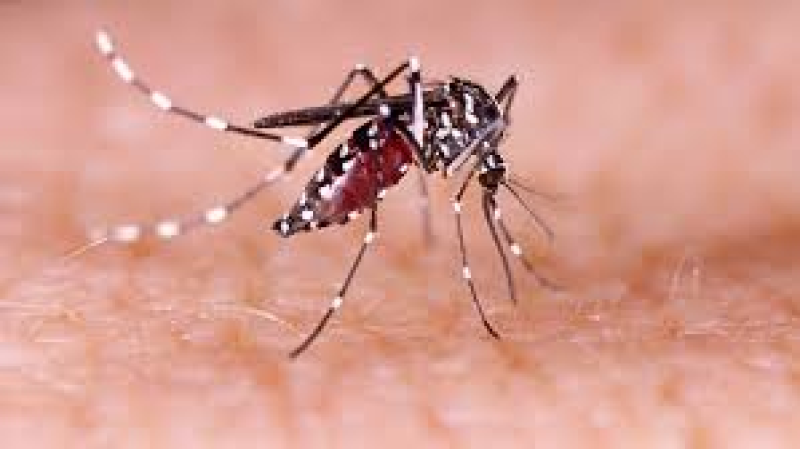- UNRWA Report on the Humanitarian Crisis in Gaza & West Bank |
- Rail link with Khulna cut off as train derails in Chuadanga |
- 3 killed, 10 injured in Pabna Bus-truck collision |
- UN Chief Appalled as Gaza Crisis Deepens, Aid Blocked |
- Dhaka’s air quality ‘moderate’ also on Friday morning |
Dengue Cases Surge as July Begins with Alarm

Bangladesh is witnessing a sharp uptick in dengue infections at the start of July, with more than 1,160 hospitalisations recorded in the first three days alone. This figure already accounts for nearly 20% of the total cases reported in June, signalling a potentially severe outbreak if urgent control measures are not taken.
Health authorities confirmed that 358 new dengue patients were hospitalised in the 24 hours preceding Wednesday morning, and one more patient succumbed to the disease. So far this year, the total number of infections has reached 11,456, while the death toll stands at 45, according to the Directorate General of Health Services (DGHS).
Officials overseeing the country’s health response say the situation remains under control, but caution that it could quickly worsen if infections continue rising at the current pace. "We are providing necessary support in identified hotspots and are fully prepared, but if the spread intensifies, managing it will become increasingly difficult," said a senior health ministry adviser.
During a handover ceremony for dengue testing kits, the adviser reiterated the need for public cooperation to maintain control of the outbreak.
Experts have raised concerns over ineffective mosquito control strategies and are calling for more focused action against the Aedes mosquitoes, the vector responsible for dengue transmission. Professor Kabirul Bashar, an entomologist, stressed that fogging alone will not be sufficient to curb the spread.
"Fogging is often overused in areas without confirmed outbreaks. What we need is a targeted approach using larvicides and insect growth regulators (IGRs), which offer longer-lasting protection," he said. He urged households and communities to take responsibility for eliminating stagnant water, where mosquitoes breed.
Without active community participation, he warned, even the most advanced control methods will fall short. "The Aedes mosquito is now widespread across all 64 districts, and this year’s outbreak could surpass previous records unless action is intensified," he added.
To combat the escalating threat, Bashar recommended that local government bodies be tasked with coordinated mosquito control efforts. He urged the ministry to supply IGRs or allow municipalities and city corporations to procure them under proper supervision.
Supporting these concerns, entomologist GM Saifur Rahman noted that the mosquito population is growing rapidly and carrying the virus more efficiently. "Infected mosquitoes can lay eggs that hatch into virus-carrying larvae, amplifying the outbreak even further," he explained.
Rahman emphasised the need for a dedicated vector control department to handle mosquito-borne disease surveillance and intervention using scientific methods. “Without structured and data-driven action, the country will continue to face seasonal dengue crises,” he warned.
Health experts agree that community awareness, combined with swift and scientifically guided intervention, remains the key to preventing a nationwide dengue emergency.

